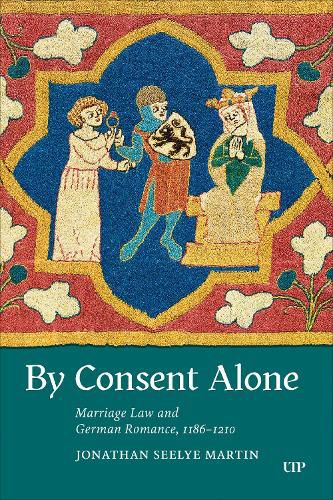Readings Newsletter
Become a Readings Member to make your shopping experience even easier.
Sign in or sign up for free!
You’re not far away from qualifying for FREE standard shipping within Australia
You’ve qualified for FREE standard shipping within Australia
The cart is loading…






The twelfth and early thirteenth centuries saw some of the most important changes to marriage laws in European history, the foremost being the decision of the Catholic Church to recognize consent as an overriding requirement for marriage. Though this revolutionary position promised far greater personal freedom and individual autonomy, these promises went largely unfulfilled.
By Consent Alone explores the developing laws of marriage in this period through the lens of the "case" (Kasus), a short narrative form that asks its audience to judge the new laws against the larger ideology of free consent. The book compares literary depictions of romance and marriage in seven canonical German romances with cases in the historical record, focusing on legal questions of consent, coerced consent, impediments to marriage, spousal abuse, and divorce. It argues that medieval German literature advocated for an expansive definition of individual and women's rights in marriage.
Comparing the fictional depictions of marriage cases with historical law, By Consent Alone provides a unique window into medieval thought and the culture of marriage, often not as it was, but as it was wished to be.
$9.00 standard shipping within Australia
FREE standard shipping within Australia for orders over $100.00
Express & International shipping calculated at checkout
The twelfth and early thirteenth centuries saw some of the most important changes to marriage laws in European history, the foremost being the decision of the Catholic Church to recognize consent as an overriding requirement for marriage. Though this revolutionary position promised far greater personal freedom and individual autonomy, these promises went largely unfulfilled.
By Consent Alone explores the developing laws of marriage in this period through the lens of the "case" (Kasus), a short narrative form that asks its audience to judge the new laws against the larger ideology of free consent. The book compares literary depictions of romance and marriage in seven canonical German romances with cases in the historical record, focusing on legal questions of consent, coerced consent, impediments to marriage, spousal abuse, and divorce. It argues that medieval German literature advocated for an expansive definition of individual and women's rights in marriage.
Comparing the fictional depictions of marriage cases with historical law, By Consent Alone provides a unique window into medieval thought and the culture of marriage, often not as it was, but as it was wished to be.